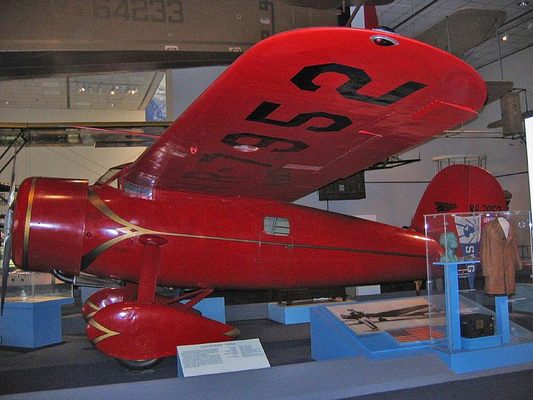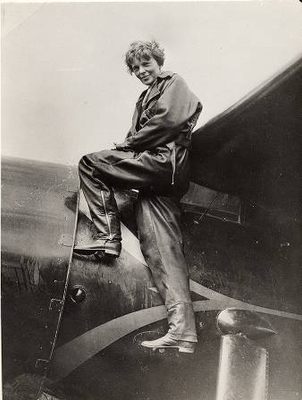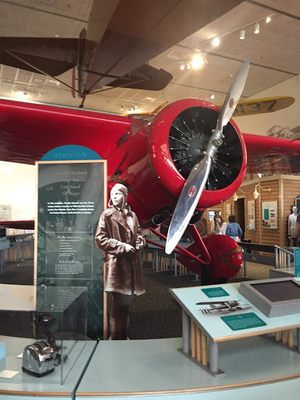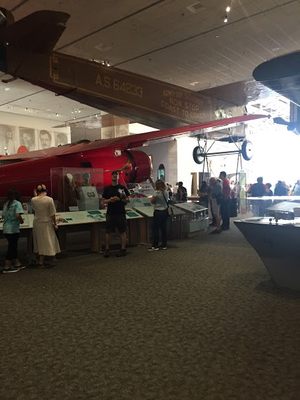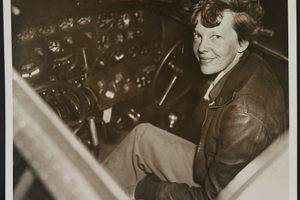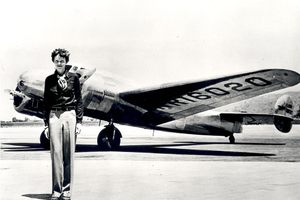About
Known to Amelia Earhart as "old Bessie, the fire horse," this bright red plane helped the aviator lock in her early record setting flights.
Born in Atchison, Kansas, Earhart came to fame following her 1932 flight from Harbour Grace, Newfoundland, across the Atlantic to Derry, North Ireland in just 14 hours and 56 minutes. As the first woman to fly solo across the Atlantic she raked in awards from the Distinguished Flying Cross to the Gold Medal from the National Geographic Society.
The six-seater Lockheed Vega monoplane was a popular choice for record setters of the era, including being the favorite for Wiley Post's around the world flights.
Earhart bought the plane in 1930 and quickly became fond of its nimble agility and long distance potential. She flew it not only on her daring transatlantic journey, but also on her August 1932 nonstop flight across the United States.
Amelia Earhart famously set off in an attempt to circumnavigate the globe in 1937, and disappeared somewhere over the South Pacific. It is thought that she crash-landed into the waters off the remote Nikumaroro Island. Nearby on Howlard Island, a lighthouse tower named after her stands in perpetual wait for her refueling stopover.
The plane was donated to Philadelphia's Franklin Institute in 1933 when Earhart bought a new plane, and it was acquired by the Smithsonian in 1966.
Update as of October 2019: The Lockheed Vega is no longer on display as the National Air and Space Museum undergoes renovations.
Update as of December 2022: The Lockheed Vega is on display in the Mary Baker Engen Restoration Hangar at the Steven F. Udvar-Hazy Center in Chantilly, VA
Related Tags
Know Before You Go
On display in the Barron Hilton Pioneers of Flight Gallery at the National Air and Space Museum, Washington, DC.
Community Contributors
Added By
Published
July 23, 2013
